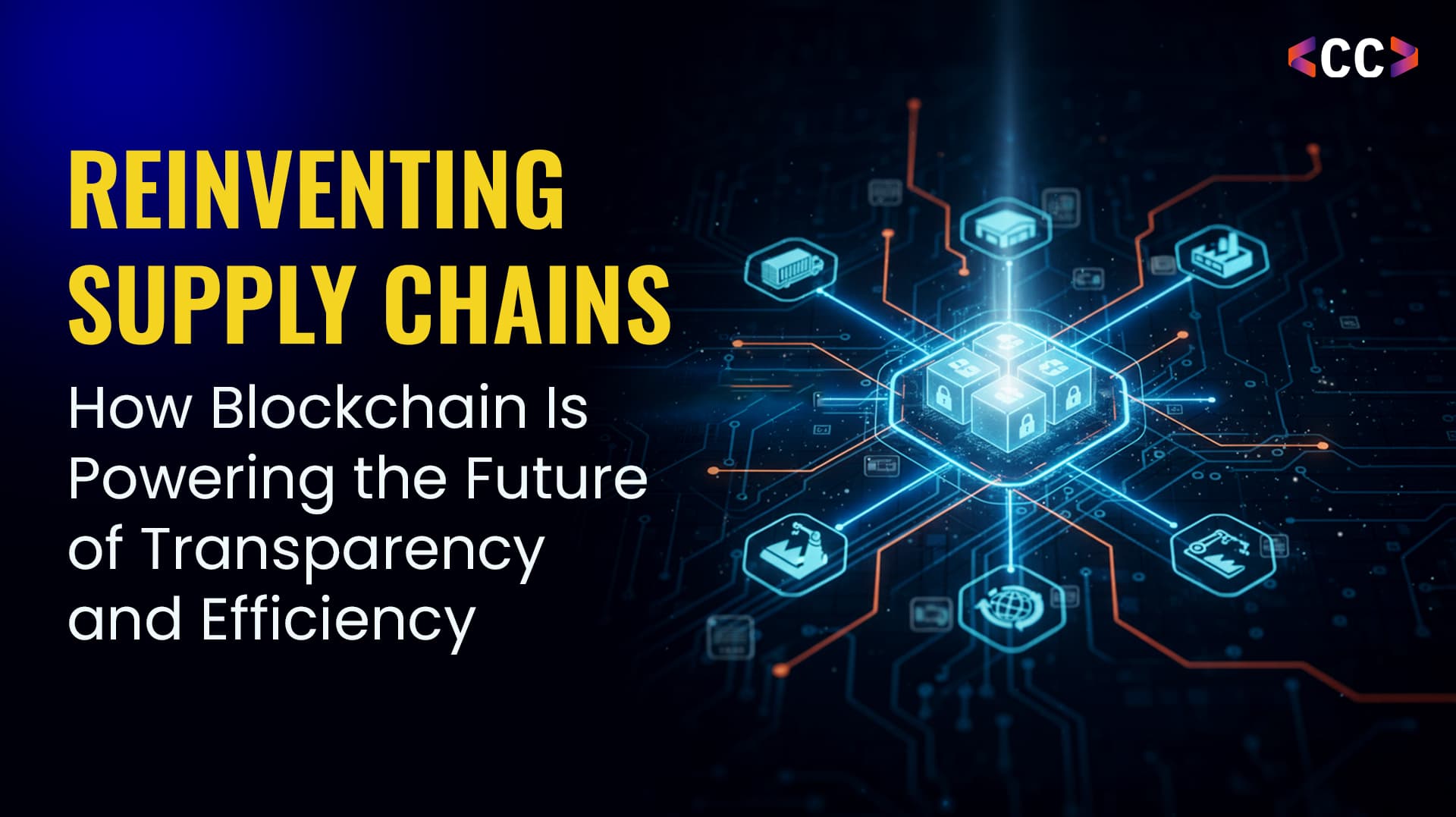Blockchain
3 months ago
Reinventing Supply Chains: How Blockchain Is Powering the Future of Transparency and Efficiency
Introduction: The New Era of Trust and Traceability in Supply Chains
In today’s fast-moving global market, visibility and trust have become the cornerstones of successful supply chain management. Enter blockchain technology—a revolutionary force that’s transforming how products are tracked, verified, and delivered across the world.
At its core, blockchain is a distributed ledger system that securely records transactions across multiple computers, making data tamper-proof and permanently verifiable. For supply chains, this means an end to hidden inefficiencies and opaque systems. Every step—from sourcing raw materials to delivering the final product—can be traced in real time, fostering unmatched transparency and accountability.
Companies adopting blockchain for supply chain management are finding themselves better equipped to handle disruptions, combat fraud, and maintain consumer trust. As digital transformation accelerates, integrating blockchain into logistics is no longer optional—it’s a strategic imperative.
(At ChainCode Consulting, we help businesses implement blockchain-powered transparency systems that modernize operations and enhance supply chain reliability.)
Building Smarter Supply Chains: Key Benefits of Blockchain Integration
The benefits of integrating blockchain into supply chain systems extend far beyond simple digitalization—they redefine how business ecosystems function.
- Enhanced Transparency and Traceability
Blockchain’s immutable ledger ensures every product movement is recorded in real time. From origin to destination, companies can verify authenticity and monitor goods through every checkpoint. - Fraud Reduction and Brand Protection
Counterfeit products and data tampering are virtually eliminated. Blockchain’s cryptographic security ensures that once a transaction is recorded, it cannot be altered—protecting both brands and consumers. - Streamlined Operations and Cost Efficiency
By automating manual processes and eliminating intermediaries, blockchain reduces delays and errors. This automation translates into faster settlements and lower administrative costs. - Strengthened Data Security
Sensitive supplier and logistics data remain encrypted, accessible only to verified participants—ensuring collaboration without compromising privacy.
Together, these advantages make blockchain not just a technology solution but a strategic driver of operational excellence.
(ChainCode’s enterprise-grade blockchain solutions are designed to deliver exactly this level of transparency and process optimization across industries.)
Real-World Transformations: Blockchain in Action Across Industries
The global adoption of blockchain in supply chains is already yielding impressive results across multiple sectors:
- Food and Agriculture: Blockchain ensures complete farm-to-fork traceability, helping identify contamination sources and verify ethical sourcing. Consumers gain confidence knowing exactly where their food comes from.
- Pharmaceuticals: Blockchain safeguards drug authenticity by tracking every batch from production to pharmacy shelves—reducing counterfeit risks and ensuring patient safety.
- Logistics and Freight: Complex shipments become fully traceable in real time, simplifying customs clearances and preventing loss or manipulation of goods.
- Manufacturing: By connecting suppliers and distributors on a single ledger, blockchain enables seamless coordination and quality assurance across production lines.
These real-world applications highlight how blockchain is redefining global logistics—turning once-fragmented networks into interconnected, trustworthy ecosystems.
The Road Ahead: Emerging Trends in Blockchain-Driven Supply Chains
The future of blockchain in supply chain management lies in deeper integration with emerging technologies like AI and IoT. Together, these innovations are creating smarter, self-regulating logistics ecosystems capable of real-time decision-making.
- AI-powered predictive analytics can optimize routes, forecast demand, and detect inefficiencies before they escalate.
- IoT-enabled sensors provide live updates on temperature, handling, and movement, while blockchain stores this data securely for audit-ready compliance.
- Smart contracts automate supplier payments once delivery conditions are verified on-chain—ensuring accuracy and eliminating disputes.
This convergence will lead to supply chains that are not just transparent but intelligent, resilient, and adaptive, a vital asset in an unpredictable global economy.
(ChainCode Consulting continues to lead this evolution through products like NFTtrace, enabling organizations to achieve verifiable transparency across every node of their supply chain.)
Now Is the Time to Build a Blockchain-Ready Supply Chain
As industries face increasing demand for visibility, sustainability, and speed, blockchain has emerged as the defining solution for modern supply chain challenges. It ensures trust without intermediaries, delivers real-time tracking, and builds customer confidence through verifiable authenticity.
Businesses that adopt blockchain today will gain a decisive edge, operating smarter, faster, and with greater resilience against disruption. The future of supply chain management is decentralized, transparent, and data-driven and blockchain is leading the charge.

